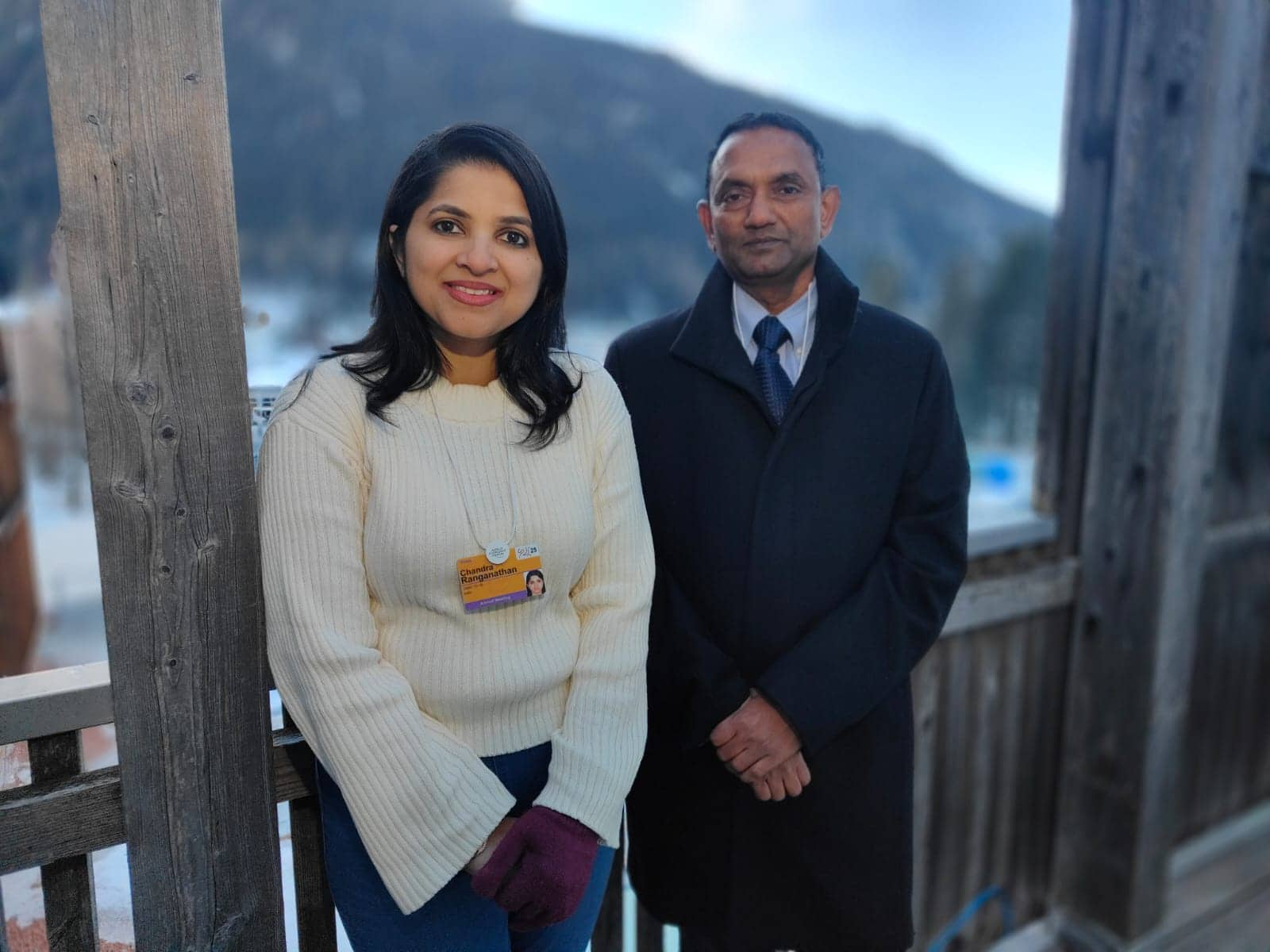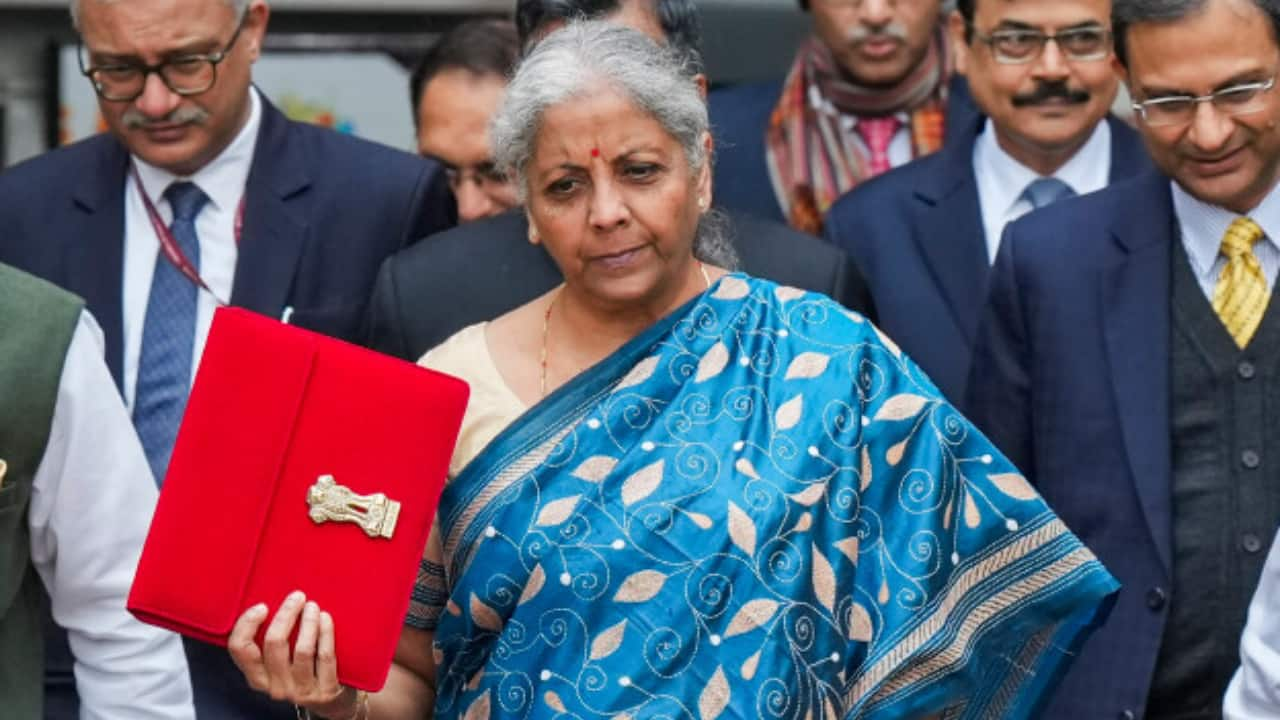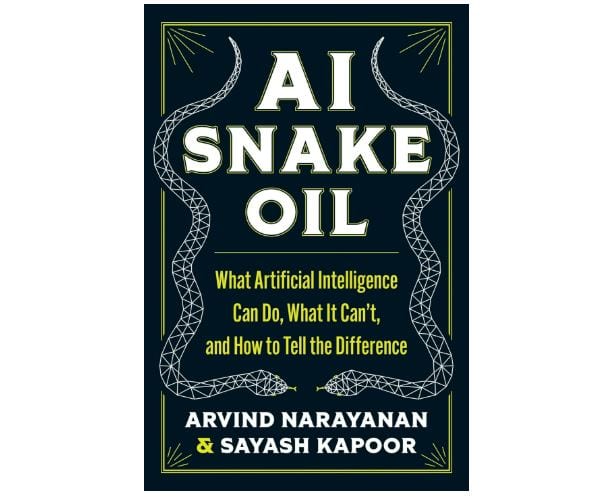One quick thing: ONDC, Ola, others to meet NRAI on private labelling issue
In today’s newsletter:
- Davos 2025: Why TCS CEO is not batting for LLMs
- India eyes role in China+1, electronics in Trump era
- What EV industry expects from Budget 2025
Was this newsletter forwarded to you? You can sign up for Tech3 here
 Top 3 stories
Top 3 stories
Davos 2025: Why TCS CEO is not batting for LLMs

What’s the mantra for India’s AI dreams: Why reinvent when you can refine?
Driving the news
India’s largest IT services firm, TCS, believes the sweet spot lies in training large language models (LLMs), rather than creating them from scratch.
Speaking to us at the World Economic Forum in Davos, TCS CEO K Krithivasan said IT companies can help customers train, fine-tune models, and adapt to paradigms like agentic AI.
“The strength of LLMs comes primarily from the ability to train them with the vast amount of data. That's where Indian IT companies would be very good at,” Krithivasan said.
This is because IT firms are already sitting atop humongous datasets that are required to train LLMs.
The case for AI training:
Krithivasan’s views resonate with industry veterans such as Infosys founder NR Narayana Murthy and Aadhaar architect Nandan Nilekani.
- Both have suggested that India’s focus should be on refining and enhancing open-source foundational models, rather than sinking vast resources into creating new ones
TCS’ rival Wipro has previously also backed the idea, saying it has built the platform Lab45, which will help clients build LLMs/SLMs.
Yes, but why?
Krithivasan believes India shouldn’t venture into building models because it may not give a competitive advantage.
“There are already so many open-source models available, you should be able to take some of them and train them. And so there's no need to build your own model.”
Nonetheless, some Indian startups have already built Indic LLMs and many corners are of the view that India will be at a disadvantage if it doesn’t have one.
Dig deeper
More highlights from our WEF Davos coverage:
- At least four companies from Kedaara Capital’s portfolio will tap the public markets to raise capital over the next 18-24 months, Manish Kejriwal, Managing Partner and Founder of the private equity firm, said. “I would say 3-4 of our companies are ready (to IPO). We’ve got to tweak some bits like get a stronger CFO in some of them, move to a big four auditor in 1-2 of them. Then, we’ve got to match that with the opportunity in the market. But there will be at least four companies that will IPO in the next 18-24 months,” Kejriwal said. More on that here
- India is the fifth most preferred investment destination among global CEOs due to “regulatory complexity”, top PwC executives said. "We interviewed more than 4,000 CEOs...We believe that when CEOs see the level of investment being made on innovation in industries such as technology, AI, energy transition, and renewable energy... there is always something good happening, new value will be created and they all want to be part of that value creation" PwC global chairman Mohamed Kande said. Find out more
- Andhra Pradesh is back and ready to do business, Telugu Desam Party (TDP) leader and state minister Nara Lokesh told us on the sidelines of the World Economic Forum in Davos. "We are ready to reintroduce Andhra Pradesh to the world and make it clear that we are back. We are actively pursuing investors to look at Andhra Pradesh seriously, especially in the energy sector," Lokesh said. Dig deeper
- Reducing interest rates alone will not accelerate economic growth, which has been slowing over the past few quarters, Axis Bank managing director and CEO Amitabh Chaudhry has said. “I think more needs to be done on supporting credit growth, more needs to be done on improving the liquidity in the system and I think that will be more important than just going and looking at the interest rate cut and hoping that things will pan out on their own,” Chaudhry said. Go deeper
- Bharat Forge is gearing up to enter the semiconductor industry, with focus on niche markets spanning sectors from consumer and automotive to industrial and high-end defence, joint managing director and vice chairman Amit Kalyani said. He added that the company has been working on a strategy for the past year to enter the specialised business, a move that will benefit the company as well as India. Dig deeper
- Communication platform Zoom is focused on India, with its core product of meetings being adopted very well in the country. "We are very focused on India. Obviously, our core product of meetings has been adopted very well within India," said Aparna Bawa, Chief Operating Officer of Zoom. More on that here
Prefer video? Check out our daily Davos bulletin that brings you the top highlights from Day 2 of the World Economic Forum.
India eyes role in China+1, electronics in Trump era

Donald Trump is the President of USA. Again.
While Silicon Valley anticipates Trump to be more pro-business, India's IT ministry has chalked out its critical areas of dialogue with the new administration with the aim of boosting the country's capabilities in various sectors.
Driving the news
What else
The government also wants to explore ways to boost India's electronic ecosystem.
The official drew parallels between what Apple did for the Indian mobile industry, and talked about exploring similar ventures with other US companies.
- Interestingly, for India, the H-1B visa issue has not raised any alarm bells
AI export issue
India also plans to take up with the Trump administration the restrictions on AI exports brought in by the previous Biden administration
- The US AI Diffusion Policy and Export Controls divides the world into three groups for reasons of exports
Go deeper
What EV industry expects from Budget 2025

The countdown to the Union Budget 2025 has begun, and India’s EV industry has its wishlist ready.
Building the backbone
Industry leaders are calling for a dedicated budget allocation to expedite the deployment of fast and efficient charging stations, particularly in tier-2 and tier-3 cities.
"With PM E-Drive Scheme's promise of 88,500 charging sites, expectations are high for further expansion," said Dinkar Agrawal founder of Oben Electric.
To be sure, during the interim Union Budget 2024, the finance minister had said that the government will invest and push for charging infra across India.
"As India moves towards its net zero emission target by 2070, the Government will work towards expanding and strengthening the EV ecosystem as well as develop the charging infrastructure," said Finance Minister Nirmala Sitharaman while delivering the Interim Union Budget 2024 speech on February 1 2024.
Industry votes for incentives
The industry is also advocating for an extension of the production linked incentive (PLI) scheme to foster advancements in advanced battery technology and boost localised manufacturing.
- Additionally, reducing GST on EV batteries from 18% to 5% could significantly lower costs by at least 10%.
While several industry players we spoke to believe the PLI scheme will benefit the sector, many acknowledged that the industry is adapting to the reduction in the FAME subsidy.
- Meanwhile, smaller EV players are hoping for an extension of the PM e-drive scheme
Dig deeper







